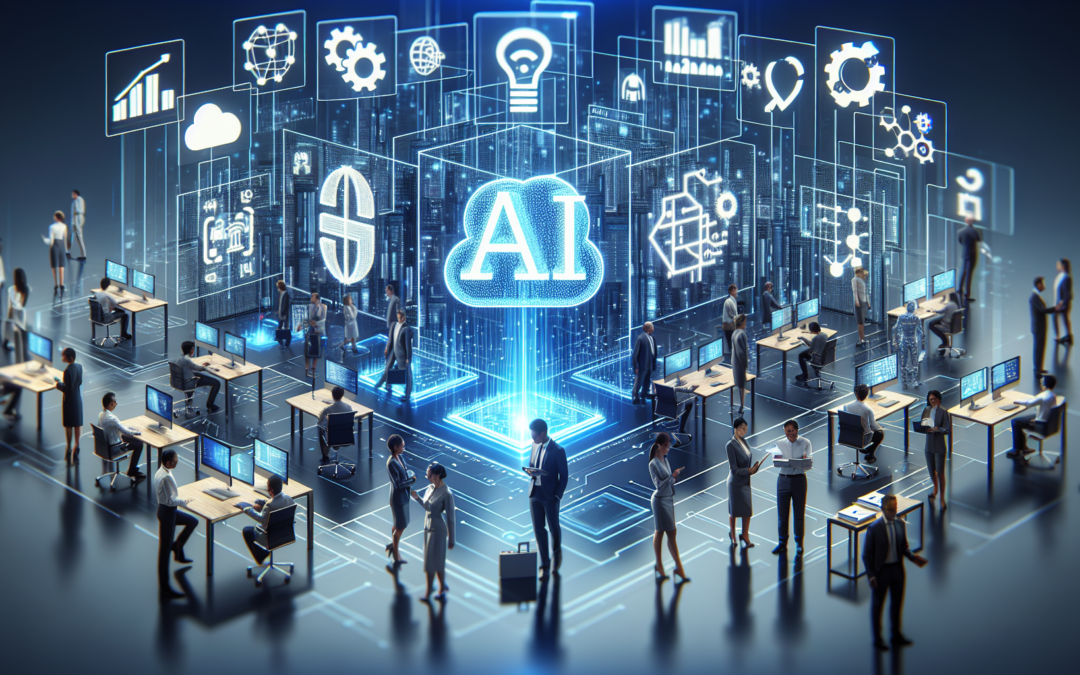“`html
Understanding the Real Impact of AI on Business
Artificial Intelligence (AI) often seems like a buzzword thrown around in boardrooms and tech conferences. While it’s true that AI is revolutionizing industries from healthcare to finance, there are several misconceptions about its application in business. These myths may hold organizations back from unleashing the full potential of AI. Let’s explore these myths and debunk them to provide clarity and vision for businesses aiming to embrace AI-driven solutions.
Myth 1: AI Is Only for Large Corporations
There’s a common misconception that AI is a tool exclusively for tech giants with billion-dollar budgets. However, AI is no longer a luxury reserved for the elite. With advancements in technology, AI has become more accessible and affordable for small to medium-sized enterprises (SMEs).
Today, cloud-based services offer scalable AI solutions, allowing even the smallest companies to implement and benefit from AI without a significant upfront investment. By leveraging AI, SMEs can optimize operations, enhance customer service, and, ultimately, compete with larger corporations. It’s all about selecting the right tools and partners to integrate AI seamlessly into your business processes.
[Read more about this myth on the Oracle Fusion Blog.]
Myth 2: Implementing AI Requires Specialized Knowledge
The myth that AI requires specialized skills and deep technical knowledge deters many organizations from adopting AI technologies. While it’s true that technical expertise can enhance AI implementation, the modern AI landscape offers numerous tools and platforms designed for users with limited technical skills.
No-code and low-code platforms are transforming how businesses approach AI. These platforms enable users to build AI-driven applications with minimal coding experience, providing intuitive interfaces to simplify the process. Organizations can thus empower non-tech-savvy employees to leverage AI, fostering a more inclusive and innovative workplace culture.
Myth 3: AI Will Replace Human Jobs
One of the most pervasive myths about AI is its potential to replace human jobs entirely. While AI is automating certain tasks, it’s crucial to view AI as a tool for augmenting human capabilities rather than replacing them.
AI excels in handling repetitive tasks, data analysis, and other labor-intensive processes, freeing up employees to focus on more complex, strategic activities that require human intuition and creativity. By integrating AI into their workforce, businesses can enhance efficiency and productivity while offering employees opportunities to upskill and transition into new roles.
Instead of a threat, AI should be seen as an ally, fostering cooperation between humans and machines to achieve greater organizational success.
Myth 4: AI Solutions Are Too Costly
Many businesses shy away from AI, believing it’s too expensive to implement. However, when evaluating costs, it’s essential to consider the long-term benefits and potential return on investment (ROI) that AI can deliver.
AI can drive cost efficiency in various ways, such as by reducing manual labor, enhancing decision-making processes, and improving customer experiences. Moreover, AI technology has become increasingly cost-effective as vendors offer flexible pricing models. These models can be tailored to fit any organization’s budget, regardless of its size or industry.
The key is to identify the specific areas where AI can provide the most significant impact and start with pilot projects that demonstrate its value, paving the way for broader implementation down the line.
Embracing AI for a Competitive Advantage
Dispelling these myths is the first step in enabling businesses to take advantage of AI’s transformative potential. By understanding that AI is not just for large corporations, doesn’t always require specialist skills, won’t necessarily replace human jobs, and isn’t prohibitively expensive, organizations can confidently explore AI as a feasible solution.
Modern businesses must recognize the evolving landscape and adapt to remain competitive. In doing so, AI can serve as a strategic asset, opening up new opportunities and streamlining operations to deliver greater value to customers. It’s time to overcome the fears and uncertainties surrounding AI and embrace its possibilities—those who do will undoubtedly lead the charge into the future of business innovation.
For more insights on AI myths and how to debunk them, visit the original Oracle article.
“`
